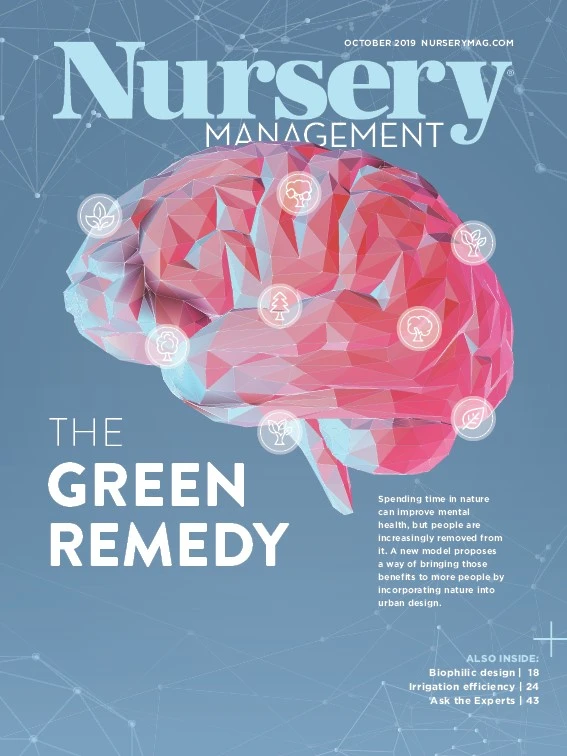
Image copyright New Africa via Adobe Stock
When I joined an underground utilities company as the HR manager, I knew nothing of the business. If I was going to add value to the organization, then I had to understand the business —what they did, how they did it, their competition and how the company could compete. Only then could I comment on staff planning, project pipelines and employee retention.
In small- to medium-sized businesses, many leaders struggle with understanding the strategic partnership that HR can have because HR does not properly understand the business. In addition, many business leaders only understand the transactional support HR provides. Many business leaders determine there is a need for dedicated HR personnel only when the transactions become more burdensome than they are willing or able to handle. For HR to demonstrate the strength of the strategic partnership, it is critical that they be intimately familiar with all aspects of your business, that there is an understanding of when to outsource transactional tasks and when to bring those back in-house.
To get the most out of your HR department or function, business leaders should differentiate the transactional tasks of HR from their strategic partnership with the business. Transactions can be outsourced and automated. There are many solutions, some of which were shared in a previous article, "Resistance is Futile," that addresses many affordable HR compliance solutions (the primary transactional tasks of HR) for small- to medium-sized businesses. The low- to no-cost solutions available are numerous and when employed, these services free up the HR team member(s) to become true strategic partners.
There is a time in the business life cycle where outsourcing transactional tasks is the right strategic move, but also a time when bringing such tasks in-house is best. According to the annual Gartner 2019 CEO and Senior Business Executive Survey, "a growing number of CEOs… deem financial priorities important, especially profitability improvement." The survey also states, "at the same time, mentions of financial priorities, cost, and risk management also increased." The appropriate treatment of transactional HR tasks can be a huge help when addressing such concerns in your organization.
Outsourcing can stabilize cash flow especially in a seasonal business, make it more predictable and easier on the budget. It can introduce automation such as self-service portals, reporting and file maintenance. Outsourcing transactional HR tasks can even shift the risks of non-compliance to a vendor, potentially saving your business hundreds of thousands of dollars in fines, fees and government-imposed remedies.
Typically, much later in the business life cycle, insourcing these transactional tasks is the right strategic move. It will provide more control of data, improve the quality of service transactions, allow for development of deeper metrics and tracking, and improve innovation and creativity around HR initiatives. Due to economies of scale, it may even be more cost effective to insource than outsource.
Knowing the right time to do each is somewhat challenging, but when done right, HR becomes a more strategic partner to your business.
Now that the transactional tasks have been appropriately addressed, we need to fully immerse HR in the business. Teach them the business from the ground up. Your HR function needs to understand not just what growers do, but what they are challenged by with various crops and systems. They need to know the role and responsibility of those leading operations, whether they are working with plants in a field or in a greenhouse, and the relationship between customer service, sales, product development, marketing and operations.
HR should shadow every department or function within your business, meet the key leaders and talk with entry-level employees. Invite HR to meet with key customers to understand this relationship and the customers’ challenges your company is trying to help them solve. Expose them to the entire industry through various trade shows and conferences so they can learn about all the companies that make up the industry as well as interact with other HR leaders to share best practices.
Strategic elements that HR brings include assisting with the development of the organization's strategic and tactical plan, organizational development and design, strategic workforce planning, succession planning, and learning and development. Even the development of compensation and benefits programs, collectively the total rewards program, is strategic. In a March 14, 2019 article by The Predictive Index, the top two CEO concerns are business strategy and talent strategy, two core areas addressed with an HR function that performs a strategic role. A Jan. 17, 2019 article by the Conference Board reports that talent and leader development are top internal concerns. These are not transactional issues. The strategic elements HR brings directly impact the ability to attract and retain top talent regardless of industry, drive organizational strategy and align development with the strategic plan.
With the appropriate treatment of transactional HR tasks, imagine the difference this makes when you ask your HR function to recruit, build a strategic staffing plan or identify and prepare succession plans. Having immersed them in all aspects of the business, when it comes to organizational design, learning and development, and performance management, HR will have the strategic understanding and capability to best advise leadership to make the correct business decisions. Reports and metrics that are meaningful can be developed to improve efficiency and effectiveness, enhance innovation and drive the competitive advantages of your business in the industry. This is HR's true value.

Michael Maggiotto Jr, PHR, SHRM-SCP is a Sr. Human Capital Advisor at BEST Human Capital & Advisory group and leads the human resources advisory services as well as providing retained executive search. He developed the firm’s WR2 HR Analysis designed to identify the Wins, Risks, and Remedies for horticulture and other niche industry companies.

Explore the October 2019 Issue
Check out more from this issue and find your next story to read.
Latest from Nursery Management
- John Ruter shares UGA's latest woody and herbaceous ornamental plant breeding projects
- Conor Foy joins EHR's national sales team
- Pantone announces its 2026 Color of the Year
- Syngenta granted federal registration for Trefinti nematicide/fungicide in ornamental market
- Get to know Kayela Aeppli
- HILA 2025 video highlights: John Gaydos of Proven Winners
- Q&A with Justin Bartlett
- Be the best choice





